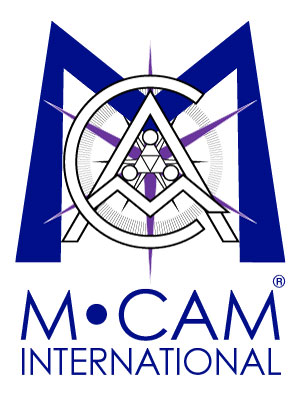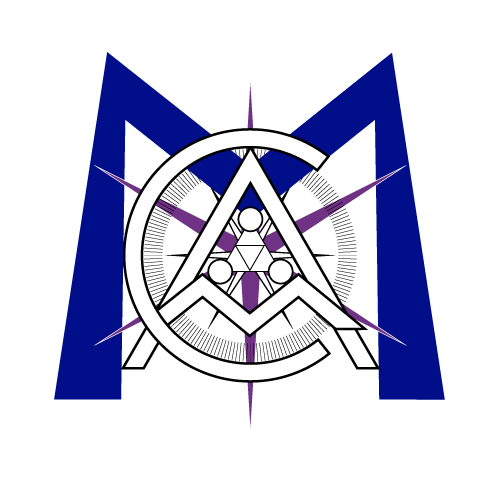March 11, 2009
In
News Archive
Date: Wed, 2009-03-11
M·CAM Comments on Recent Microsoft/TomTom Patent Litigation
Charlottesville, Virginia – March 11, 2009 –– On February 25, 2009, Microsoft filed suit against TomTom, alleging that the in-car navigation company’s products violate eight of its patents: five concerning navigation technology and three regarding filename management.
Microsoft Patents Patent Title Priority Date File Date Issue Date
US5579517 Common name space for long and short filenames 1-Apr-95 24-Apr-95 26-Nov-96
US5758352 Common name space for long and short filenames 1-Apr-93 5-Sep-96 26-May-98
US6175789 Vehicle computer system with open platform architecture 29-Nov-95 10-Sep-99 16-Jan-01
US6202008 Vehicle computer system with wireless internet connectivity 29-Nov-95 10-Sep-99 13-Mar-01
US6256642 Method and system for file system management using a flash-erasable, programmable, read-only memory 29-Jan-92 29-Jan-92 3-Jul-01
US6704032 Methods and arrangements for interacting with controllable objects within a graphical user interface environment using various input mechanisms 27-Oct-00 27-Oct-00 9-Mar-04
US7054745 Method and system for generating driving directions 3-Sep-03 3-Sep-03 30-May-06
US7117286 Portable computing device-integrated appliance 15-Nov-02 11-Oct-05 3-Oct-06
Microsoft claims that this suit was filed after over a year of licensing discussions with TomTom. However, preliminary analysis of Microsoft’s asserting patents and the patent portfolio held by TomTom reveals potential issues for Microsoft.
Interestingly enough, four of the patents asserted by Microsoft (US7117286, US7054745, US6202008, and US6175789) feature claims that may have already been anticipated in previous TomTom patent filings. These potentially weaken Microsoft’s assertion. Below is a subset of TomTom’s patent portfolio.
TomTom Patents Patent Title Priority Date File Date Issue Date
US5938720 Route generation in a vehicle navigation system 9-Feb-95 15-Jan-97 17-Aug-99
US5712788 Incremental route calculation 9-Feb-95 9-Feb-95 27-Jan-98
US5608635 Navigation system for a vehicle with route recalculation between multiple locations 14-Apr-92 17-Nov-94 4-Mar-97
US5550538 Navigation system 14-Jul-93 31-Oct-94 27-Aug-96
US5515284 Storage medium for map information for navigation system and system for offering map information for navigation system 25-Sep-91 19-Apr-95 7-May-96
US5311434 Vehicle navigation system 5-Aug-91 31-Jul-92 10-May-94
US5303159 Navigation system with off-route detection and route recalculation 14-Apr-92 14-Apr-92 12-Apr-94
US5291414 Navigation system for guiding a vehicle along a precomputed optimal route 14-Apr-92 14-Apr-92 1-Mar-94
US5291413 Navigation system for guiding a vehicle along a precomputed optimal route 14-Apr-92 14-Apr-92 1-Mar-94
US5291412 Navigation system 24-Mar-92 24-Mar-92 1-Mar-94
US5262775 Navigation system with off-route detection and route recalculation 7-Apr-92 7-Apr-92 16-Nov-93
EP1811269 Navigation device and method for displaying alternative routes 26-Feb-03 26-Feb-04 25-Jul-07
EP1611416 NAVIGATION DEVICE AND METHOD FOR DISPLAYING ALTERNATIVE ROUTES 26-Feb-03 26-Feb-04 30-May-07
EP1608935 NAVIGATION DEVICE AND METHOD FOR DISPLAYING SIMULATED NAVIGATION DATA 26-Feb-03 26-Feb-04 14-Nov-07
EP1599703 NAVIGATION DEVICE WITH TOUCH SCREEN 26-Feb-03 26-Feb-04 21-Mar-07
EP1599702 NAVIGATION DEVICE AND METHOD FOR EXCHANGING DATA BETWEEN RESIDENT APPLICATIONS 26-Feb-03 26-Feb-04 14-May-08
WO2004076979 NAVIGATION DEVICE WITH TOUCH SCREEN 26-Feb-03 26-Feb-04 10-Sep-04
WO2004076978 NAVIGATION DEVICE AND METHOD FOR DISPLAYING SIMULATED NAVIGATION DATA 26-Feb-03 26-Feb-04 10-Sep-04
WO2004076977 NAVIGATION DEVICE AND METHOD FOR EXCHANGING DATA BETWEEN RESIDENT APPLICATIONS 26-Feb-03 26-Feb-04 10-Sep-04
WO2004076976 NAVIGATION DEVICE AND METHOD FOR DISPLAYING ALTERNATIVE ROUTES 26-Feb-03 26-Feb-04 10-Sep-04
Additional research, as well as identification of the specific Microsoft patent claims being asserted in the lawsuit, would shed more light on potential weaknesses in both parties’ position. Subsequent Microsoft patent claims likely anticipate disclosures found in more recent TomTom filings. M·CAM analytics have identified 1,761 pieces of unconsidered precedent innovation affecting both parties’ positions, a selection of which are shown below.
Patents Patent Title Assignee Priority Date
US5051735 Heads-up display system for a road vehicle Honda Giken Kogyo Kabushiki Kaisha 25-Sep-87
US5038401 Transmitter for remote control with operation switches having changeably displayed forms Pioneer Electronic Corporation 5-Apr-89
US4922486 User to network interface protocol for packet communications networks American Telephone and Telegraph Company 31-Mar-88
US4897642 Vehicle status monitor and management system employing satellite communication Secura Corporation 14-Oct-88
US4878170 Vehicle navigation system Eliahu I. Zeevi 17-Mar-88
US4875229 Vehicle telephone with call answering and recording means Anthony P. Palett 11-Jan-89
US4875206 High bandwidth interleaved buffer memory and control American Telephone and Telegraph Comopany, AT&T Bell Laboratorie 31-Mar-88
US4873513 Automated map display system Geodisplay Technology Limited Partnership 26-Aug-87
US4872157 Architecture and organization of a high performance metropolitan area telecommunications packet network American Telephone and Telegraph Company, AT&T Bell Laboratories 31-Mar-88
US4842378 Method of illuminating flat panel displays to provide CRT appearing displays Alphasil, Inc. 7-Apr-87
US4812990 System and method for optimizing aircraft flight path Merit Technology Incorporated 29-Apr-87
US4796190 Navigation system Elihu C. Cummings 4-Jun-86
US4788645 Method and apparatus for measuring relative heading changes in a vehicular onboard navigation system Etak, Incorporated 21-Mar-86
US4787040 Display system for automotive vehicle International Business Machines Corporation 22-Dec-86
US4737916 Electronic map display system Nippondenso Co., Ltd. 30-Apr-85
US4733356 Control device for a vehicle route guidance system Daimler-Benz Aktiengesellschaft 14-Dec-84
US4714995 Computer integration system TRW Inc. 13-Sep-85
US4675676 Map display system Nippondenso Co. Ltd. 9-Mar-83
US4660037 Current location indication apparatus for use in an automotive vehicle Honda Giken Kogyo Kabushiki Kaisha 28-Jan-82
US4651157 Security monitoring and tracking system METS, Inc. 7-May-85
US4638438 Navigation apparatus for automotive Hitachi, Ltd. 23-May-83
US4345147 Vehicle mounted mobile business data handling system International Telephone and Telegraph Corporation 14-Nov-80
US4258421 Vehicle monitoring and recording system Rockwell International Corporation 27-Feb-78
EP0242099 Anti-theft and locating system Advanced Strategics, Inc. 9-Apr-86
DE4033832 Touch-contact operating field for automobile navigation aid – has temporary display of switch pattern on screen used to display navigation map MITSUBISHI DENKI KK TOKIOTOKYO JP 24-Oct-89
Given that the intellectual property system was designed to stimulate innovation and benefit the advancement of “science and the useful arts”, it is worth considering the public interest in this case. An outcome that would benefit consumers on both sides of the Atlantic would be for both parties to acknowledge that neither one has an unassailable patent position and that, in fact, the unnecessary cost of litigation, ultimately borne by the consumer, is resting on easily contestable patent assertions. It is our hope that Microsoft and TomTom can actually navigate their way to a resolution that doesn’t keep the consumer perpetually lost.

